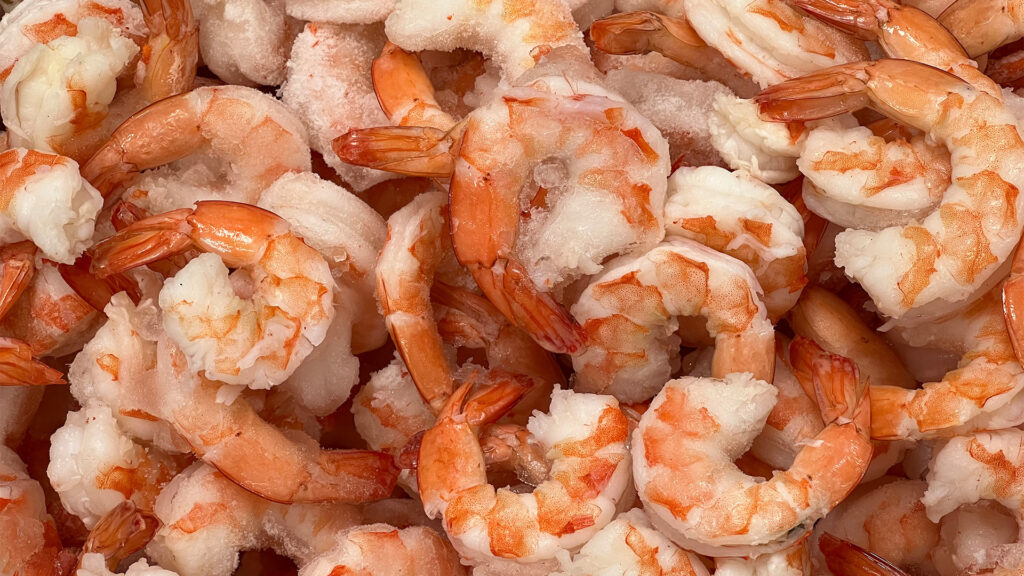For decades, U.S. shrimpers struggled to compete against a flood of cheap, foreign imports. Despite hopes that recent tariffs under the Trump administration could help level the playing field by making imported shrimp more expensive, the damage to the domestic industry has been profound. In Alabama alone, the number of licensed shrimpers has declined by more than two-thirds since the 1990s, forcing many to shut down entirely.
Now, one scientist is fighting back.
Dave Williams, a commercial fisheries scientist and founder of SeaD Consulting, is leading a campaign to uncover where shrimp served in Gulf Coast restaurants and festivals really comes from. His mission is simple: protect local fishermen, restore consumer trust and expose deceptive practices that mislead customers into believing they’re eating Gulf shrimp when they’re not.
Gulf Coast festivals serving imported shrimp
The Gulf region is famous for its festivals, celebrating everything from music and the arts to cars, hot air balloons — and, of course, shrimp. One of the most iconic events is the National Shrimp Festival in Alabama, a tradition for over 50 years that draws around 250,000 attendees annually. The event promotes local pride and promises “shrimp just about any way you want it,” with vendors advertising “fresh seafood from the Gulf of Mexico.”
But that claim doesn’t always hold up.
At the most recent festival, a team led by Williams tested the shrimp being sold. What they found was eye-opening: four out of five vendors were serving imported, farm-raised shrimp, not Gulf shrimp as advertised.
“Places that used to sell Gulf shrimp have gone for a cheaper, easier solution,” Williams said. “What they’re doing is using an [sic] imported shrimp instead of a [sic] Gulf shrimp.”
Williams develops genetic testing for shrimp
Unbiased. Straight Facts.TM
In a test of 24 restaurants in Shreveport, Louisiana, 71% were found to serve foreign, farm-raised shrimp.

In 2024, Williams announced a campaign to investigate the true origins of shrimp being sold at Gulf Coast restaurants and festivals. Together with researchers from Florida State University, Williams spent four years developing a breakthrough in seafood authentication: a rapid genetic test that can identify whether a shrimp is imported or domestic — even after it’s been cooked — all in less than two hours.
Using undercover inspectors, Williams’ team purchases shrimp dishes at festivals and restaurants, then tests them using methods similar to how viruses are detected in labs.
“They’re just truly horrible,” Williams said about the results.
In total, 71% of the 24 restaurants tested served foreign, farm-raised shrimp, and 58% deceptively labeled it as domestic or failed to indicate the origin at all — a violation of state law.
Here’s what the fraud rate looked like across Louisiana in recent months:
Shreveport: 71%.
Baton Rouge: 30%.
New Orleans: 13%.
Lafayette: 33%.
Williams says he doesn’t object to imported shrimp being sold as long as it’s clearly labeled.
“I have no issue with a Chinese restaurant in Louisiana selling imported shrimp,” Williams said. “What I have an issue with is when someone has a picture of a boat on the wall, nets in the corner, and a term like ‘shrimper’s net catch’ for their peel-and-eat entrée. Come on — it should be Gulf shrimp. It has to be Gulf shrimp.”
Promising results but work to be done
The exposure is already prompting change. Williams said many of the businesses caught misrepresenting their shrimp have since corrected course, and government officials are beginning to enforce accountability. Louisiana lawmakers passed tougher shrimp labeling enforcement laws, which took effect Jan. 1, 2025. As of April 11, the health department has recorded 415 violations and issued 136 fines of $500 each.
However, Williams knows his work is far from over. A recent round of testing at restaurants in North Carolina revealed a staggering 77% fraud rate, underscoring how widespread the problem remains. His team is committed to continuing their efforts to protect local fishermen, hold businesses accountable, and ensure that when a person orders Gulf shrimp, that’s exactly what ends up on their plate.


